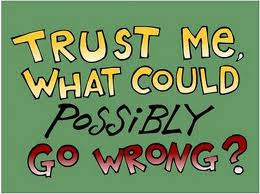One of our true national treasures, Linda McQuaig (why has she not received an Order of Canada?) recently wrote an article detailing the abysmal conditions under which pigs await slaughter. It is a piece that should make all of us cringe, whether or not we regularly eat pork:
Many people — meat-eaters included — object to the factory farm practice of confining pigs for virtually their entire lives to metal cages so small they can’t even turn around.
That’s why the Canadian pork industry, sensitive about its public image, decided to eliminate the practice — a move hailed by Canada’s Humane Society as “a watershed moment for farm animals in Canada.”
This led to a rare round of positive coverage for the beleaguered industry, with the media reporting that the move would please Canadian consumers and bring Canadian animal welfare practices in line with more advanced European standards.
All that happened back in 2014. Yet, six years later, millions of pigs in Canada continue to spend their lives locked in these narrow cages — because the ban doesn’t actually come into effect until 2024.Many people — meat-eaters included — object to the factory farm practice of confining pigs for virtually their entire lives to metal cages so small they can’t even turn around.
In fact, that leisurely 10-year phase-in period seems about to get longer. The pork industry has decided it needs more time and has indicated its desire to grant itself a further five-year extension.
How is this possible? In a word: self-regulation, a self-regulation that is aided and abetted by the Doug Ford government, which
just made it easier for the industry to shield its operations from public view, passing legislation last month aimed at cracking down on trespassing activists and journalists who often work undercover on industrial farms in order to take photos and videos.
Those videos have done a great deal to raise public awareness of the conditions under which our food makes its way to our table:
One undercover video, aired last month on CTV’s national investigative program W5, included graphic footage of adult pigs being hit with heavy objects and baby pigs squealing and squirming in pain as workers cut off their tails and castrate them.
Lest we be inclined to think of animals as insensate beings, consider this:
As renowned anthropologist Jane Goodall notes: “Farm animals feel pleasure and sadness, excitement and resentment, depression, fear and pain.”
The intensity of animal emotions has been captured on videos of rescued farm animals experiencing their first taste of freedom. They run, romp and play — even enormous adult pigs — and certainly appear to be experiencing something akin to joy.
Of course, any dog owner can confirm that animals feel emotions. And any dog owner would gasp at the thought of their dog trapped in a confining cage, 24 hours a day, unable to even turn around.
But the factory farm industry is counting on us not making the connection. And the best way to ensure that, as Doug Ford knows, is to prevent us from seeing photos of locked-up pigs looking every bit as sad and scared as our own dogs would be in those cages.
Whether we are vegetarians, vegans or regular or occasional consumers of animal flesh, it is incumbent upon all of us not only to be aware of the deplorable conditions under which our food is processed but also to demand much better both from the industry and the Doug Ford government.








